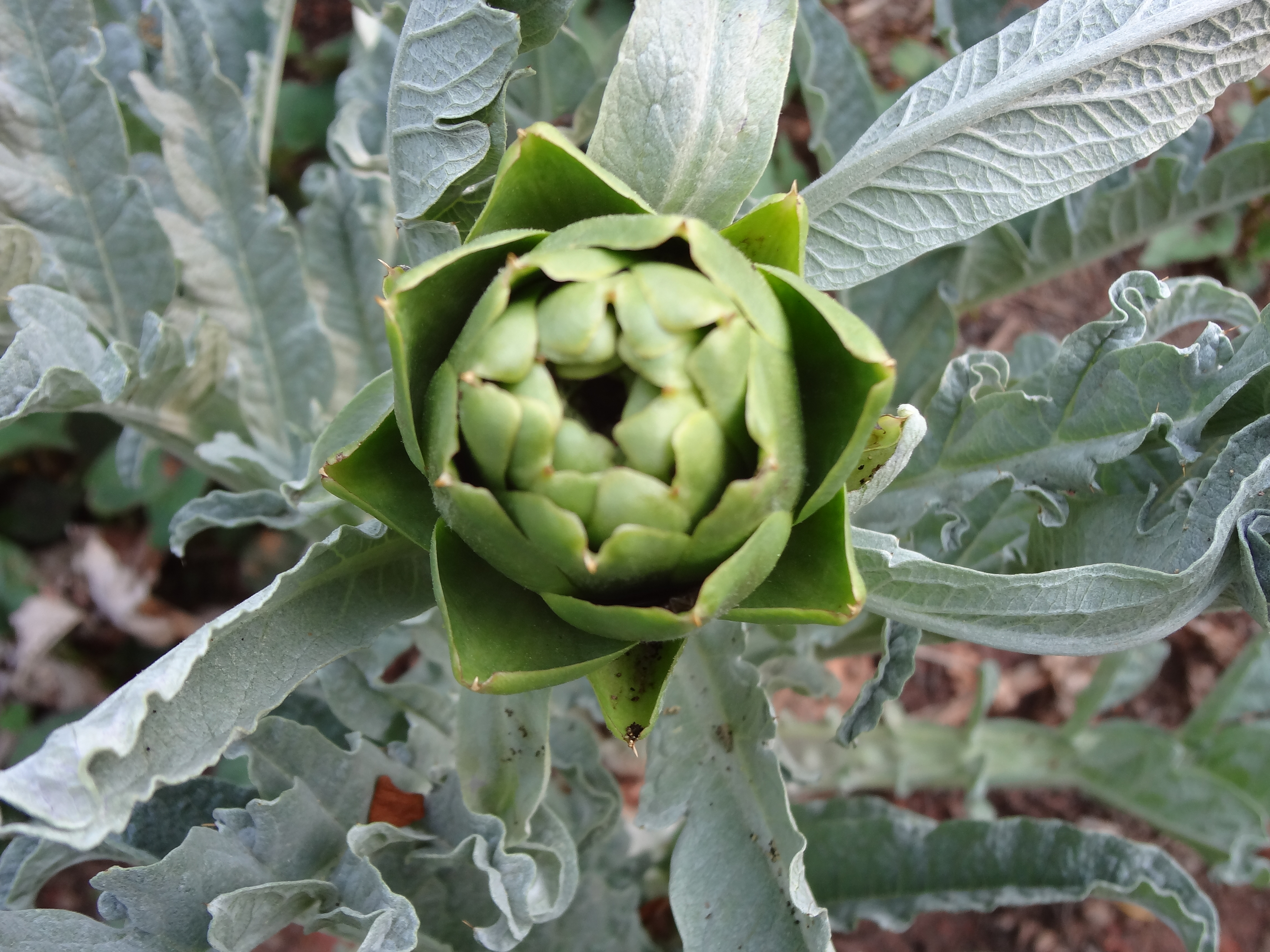
My inaugural year of raised bed vegetable gardening in 2012 was a bit of a mess. My precious but extremely leggy seedlings all died while the hubs and I were vacationing in Amsterdam, and I was incredibly busy with something or another and just wound up slinging seeds around and hoping for the best. In addition, my waterings were intermittent at best, because the beds are very far from the house, with plenty of obstacles in between, making it very inconvenient to water.
The good news is that I learned what plants can best survive neglect (carrots, serrano peppers, eggplants, asparagus, artichoke, bush beans), and had a whole year of sad-looking beds to motivate me to get my research done.
This year is different! I’ve evacuated the asparagus and artichoke from the raised beds, making a large asparagus bed for future use (it takes a couple of years to really get going, but then they last forever), and a planned line of artichokes to have different plants at different levels of maturity (they produce for 4-8 years). Moving these perennials leaves the raised beds free for a variety of annual vegetables and their companion plants.
I have used Southern Exposure’s Garden Planner (which, as far as I can tell, is the same as every other main seed company’s garden planners) to plan out my two beds to a tee. I used a wide variety of sources to create prototypical Google calendar of gardening to-dos for my zone, including when to start seeds, transplant seedling, or direct sow. These items now show up in my calendar on my phone, which helps keep me on track.
This year I started tomatoes, patty squash, zucchini, bush beans, pole beans, sunflower, cucumbers, fish peppers, bell peppers, jalapeno, and serranos inside and transplanted them out ready to go at the last frost date. I used a commercially available mini “greenhouse” as well as everyone’s favorite Pinterest idea, using old toilet paper rolls. More on those experiments later.
They are a lot smaller than the greenhouse plants available now at big-box stores, but they were also a lot cheaper! I have purchased a few seedlings from these big box stores to compare and contrast growth and output over the season.
Lastly, and perhaps most importantly, there is now an irrigation system in place! With some yard sale hosing, some Discover-cashback-same-as-cash-on-Amazon purchases, and a few fittings from the hardware store, we have a drip irrigation system in place. Now all I have to do is turn it on when I get home to start dinner, and off again when dinner is ready to serve. Hopefully this will be an easy habit to establish, and it should greatly improve the quantity and quality of my water-hungry crops like cucumbers, tomatoes, and peppers.
I’ve also got some of the more drought-tolerant vegetables (radishes, carrots, beans) in containers elsewhere in the yard to save the bed space for the crops that appreciate the irrigation the most, as well as some of the extra, weaker seedlings of some of my other crops – might as well give them a chance to prove what they can do.
Hooray! Here’s hoping it all goes well. I’ll be sure to update with what I learn. Anyone else gardening this year? What are you excited about?
emily
Nerd. Foodie. Gamer. Homecook. Perpetual planner. Gardener. Aspiring homesteader. Direct response graphic designer. I use too many damn commas.
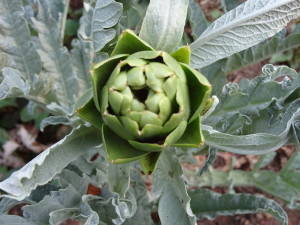
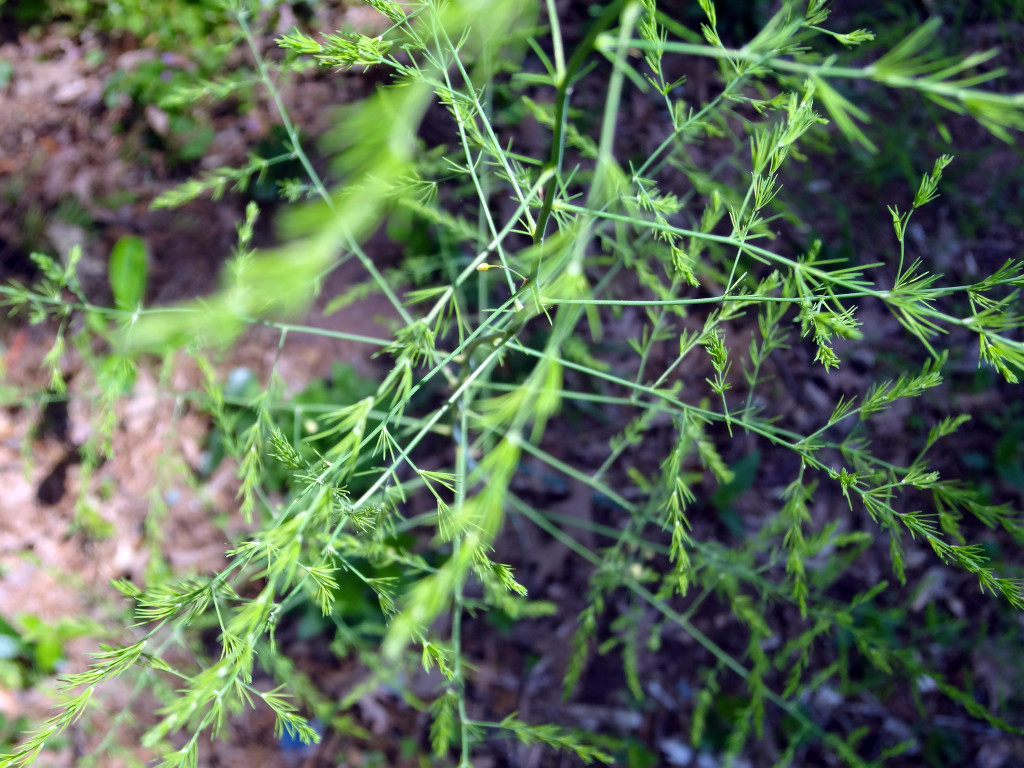

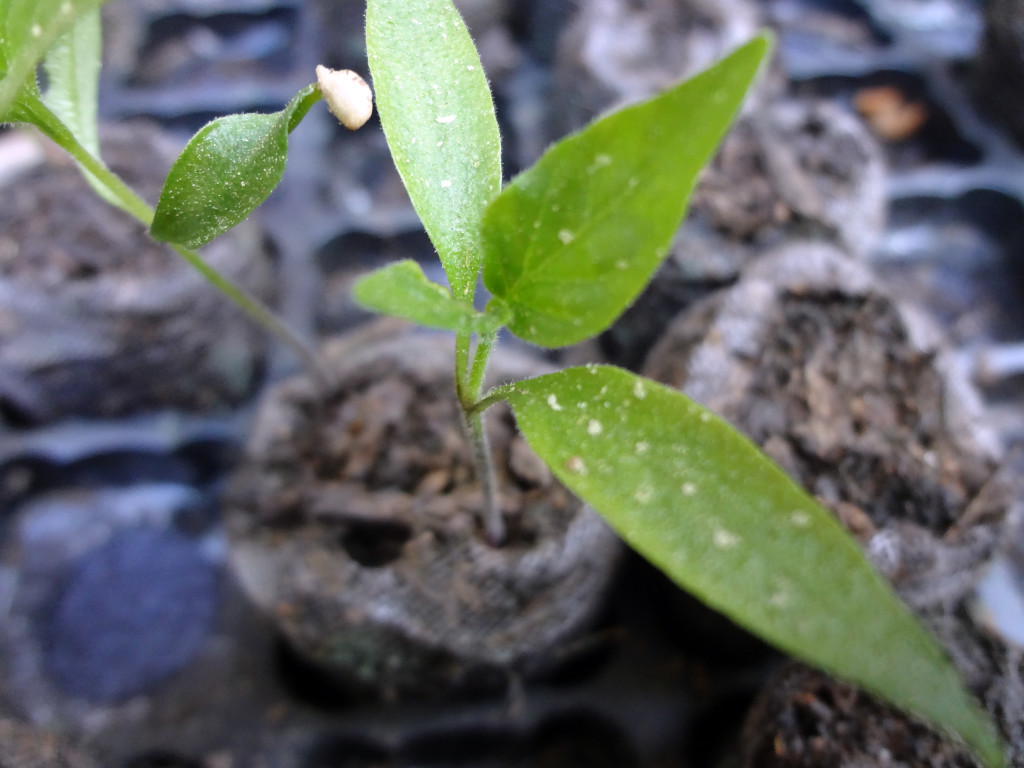
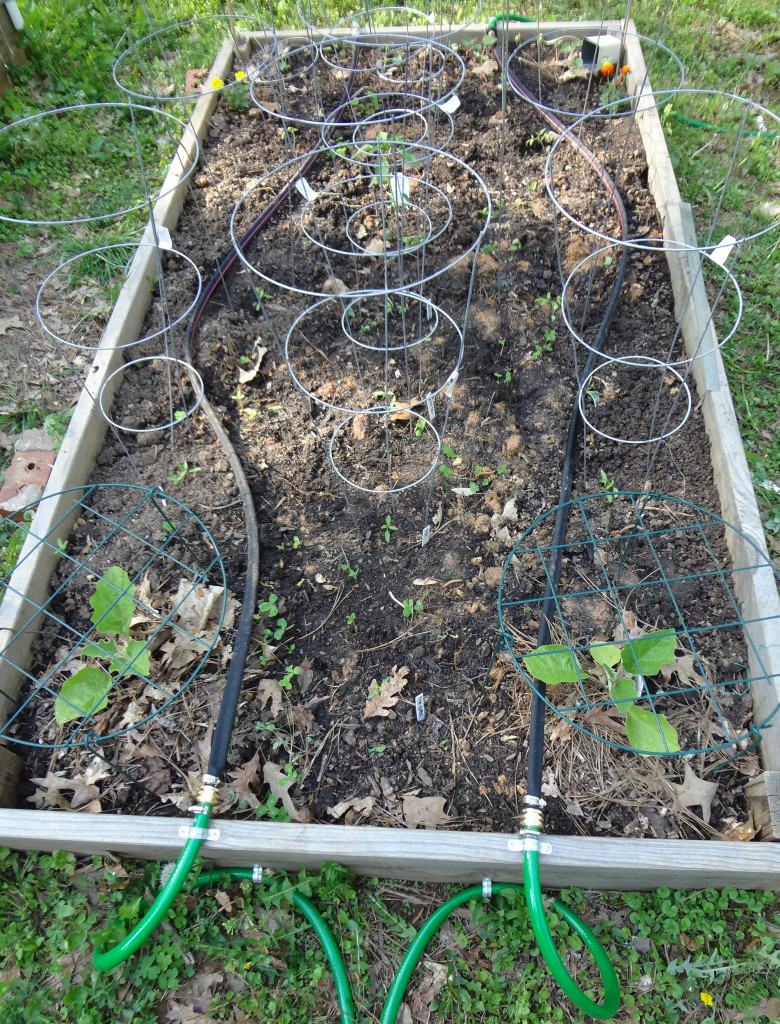
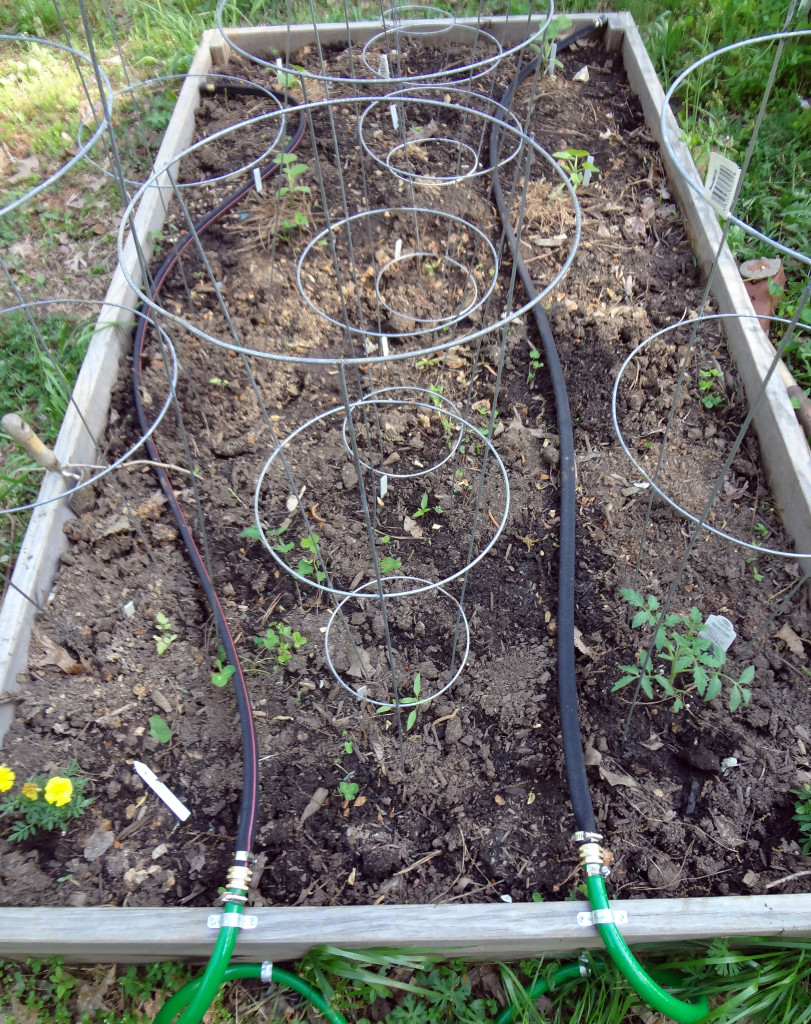
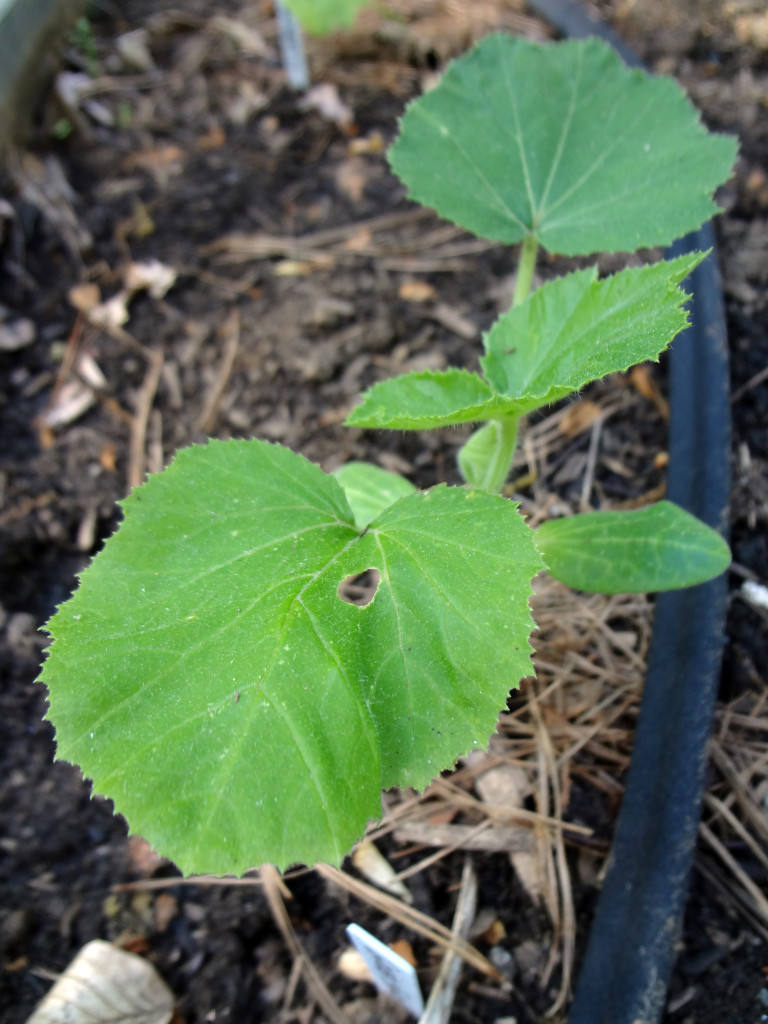
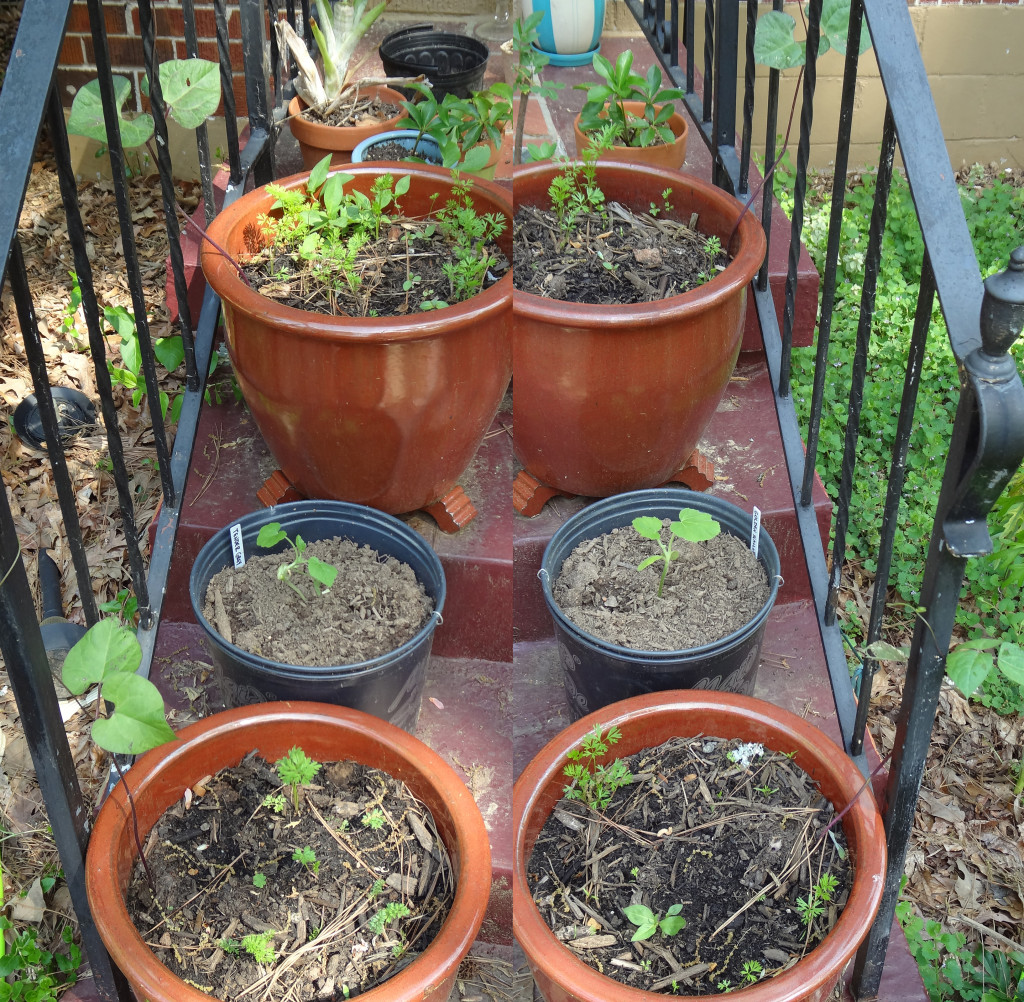
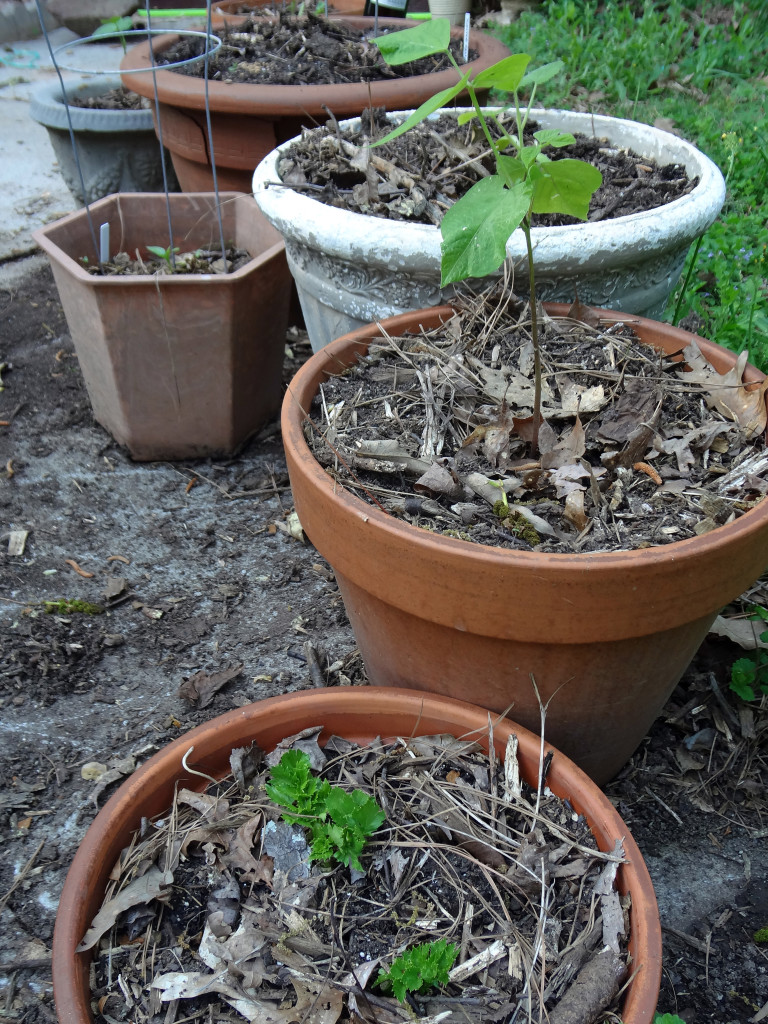
Exciting times! I can’t wait to hear the saga of your garden. My parents use irrigation-style hoses for their raised-bed garden as well, and they’ve yielded great veggies for several years now. 😀 Good luck!